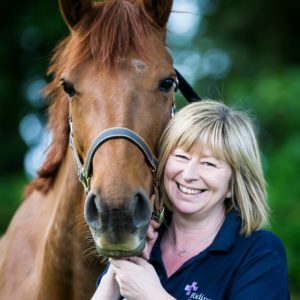When is the right time to say goodbye?
Sometimes the decision for euthanasia is made for us in an emergency situation but sadly more often than not we have to make these difficult decisions and as loving horse owners it is our responsibility to choose when to say goodbye and the decision can lie heavily on our shoulders. It is my job as a vet to be there to help and support you so that you don’t feel like you have to make this decision on your own.
This year (and many before it) I have tried to support some of my most valued and long-standing clients contemplating whether to say goodbye to their horses. I’ve witnessed firsthand the sleepless nights and stress that having to make such a decision can have. It is never the same for me as a vet as it will be for the owner of a horse, but I have my own horses and I’ve known some of my clients and their horses since before Ridings Equine Vets even started and I feel a responsibility to help and make sure that the right decision is made. I always say to my clients that they have to feel they’ve made the right call because they ultimately have to live with the decision for the rest of their lives.
Planning ahead allows you to have more time to focus on your horse and to say goodbye. Don’t be afraid to bring up the conversation with us, we are not here to judge you and in my experience many clients worry that I might think they are making the wrong decision or being unfair. That is never the case. You know your horse better than anyone and everyone’s situation is different.
One thing this year has shown me is that what is right for one client isn’t necessarily right for another. Don’t feel pressured to make decisions based on the opinions (no matter how strong!) of others. Take some time to really think about your options.
Choose a few trusted friends to discuss the decision with as involving too many people can lead to a mix of decisions and emotions and cause unnecessary stress and upset at an already very difficult time.
Ultimately the decision should come down to quality of life which will reflect the disease the horse is suffering and the amount of pain they are living with. Quality of life can be very difficult to assess and an impartial way to assess it is to ask whether your horse is able to conduct their normal behaviors, e.g. getting up, lying down, eating and the ability to move around freely without pain. But sometimes it can be a lot less obvious, your horse may not be their normal self, no longer cheeky or might have lost their place in the field pecking order. If the line is becoming blurry ask yourself if they are having more bad days than good?
The biggest regret I’ve seen in the past is owners regretting not making the decision sooner, never the other way around.
There is a saying that I think is very true: ‘better a week too early than an hour too late’.
Next time I’ll talk about the actual process of euthanasia and some of the practical matters and logistics.
If you’re worried about your horse or struggling with this decision, please don’t do it on your own. Reach out to any one of us, that is what we are here for and we don’t want you to go through this alone.
Jenny x
